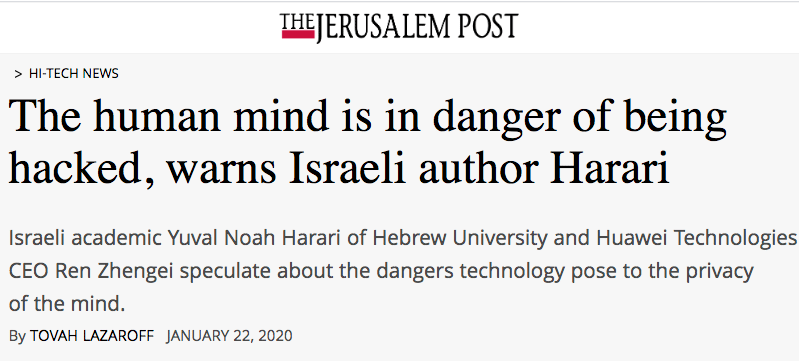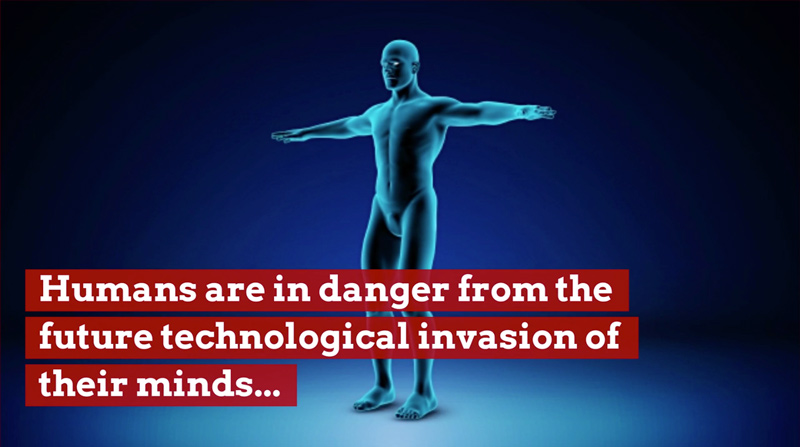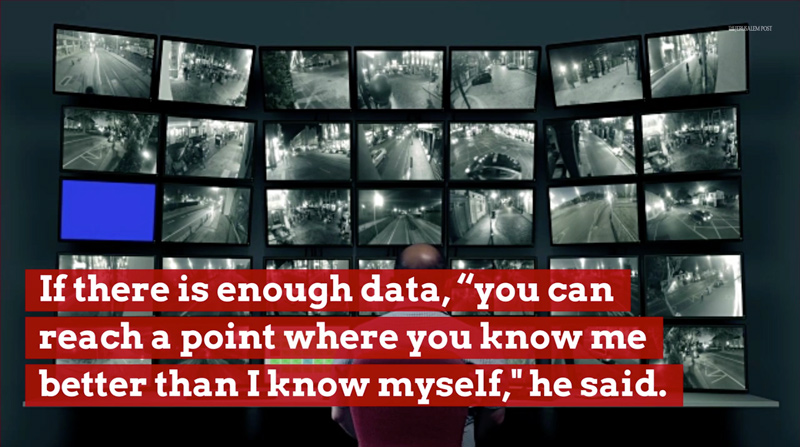
Humans are in more danger from the future technological invasion of their minds than they are from a foreign military force taking over their country, warned Yuval Noah Harari, the best selling author of Sapiens: A Brief History of Humankind.
He took the stage at the World Economic Forum at Davos in Switzerland, along with Huawei Technologies Chief Executive Officer Ren Zhengei, to discuss his dismal view of a future in which all but a person’s soul could be lost.
“I understand the current arms race as an imperial arms race, which may lead very soon to the creation of data colonies,” Harari said.
“You don’t need to send the soldiers in if you have all the data,” he explained.
Harari, who is a professor at the Hebrew University of Jerusalem, warned technology would soon enable some corporations and governments to hack human beings.

“There is a lot of talk of hacking computers, smartphones, computers, emails, bank accounts, but the really big thing is hacking human beings,” said Harari. He explained that to do this, one needs biological and personal data as well as computer power.
“If you have enough data about me and enough computer power and biological knowledge, you can hack my body, my brain, my life,” he said.
“You can reach a point where you know me better than I know myself,” Harari said.
Imagine what could happen if the person who was hacked was the president of a country or the head of a supreme court, Harari continued.
Zhengei did not rule out the possibility of Harari’s dim forecast of the future. Still, he said, there were limits to technology intrusion, explaining that he did not think that a person’s soul could be hacked.
The Chinese businessman took a much more positive view of the future, noting that technology has made people smarter and allows for humanity to progress.
Technology can work both ways, Zhengei said. A government can use surveillance tools against its citizens, but at the same time, an individual can also develop surveillance tools, he added.
